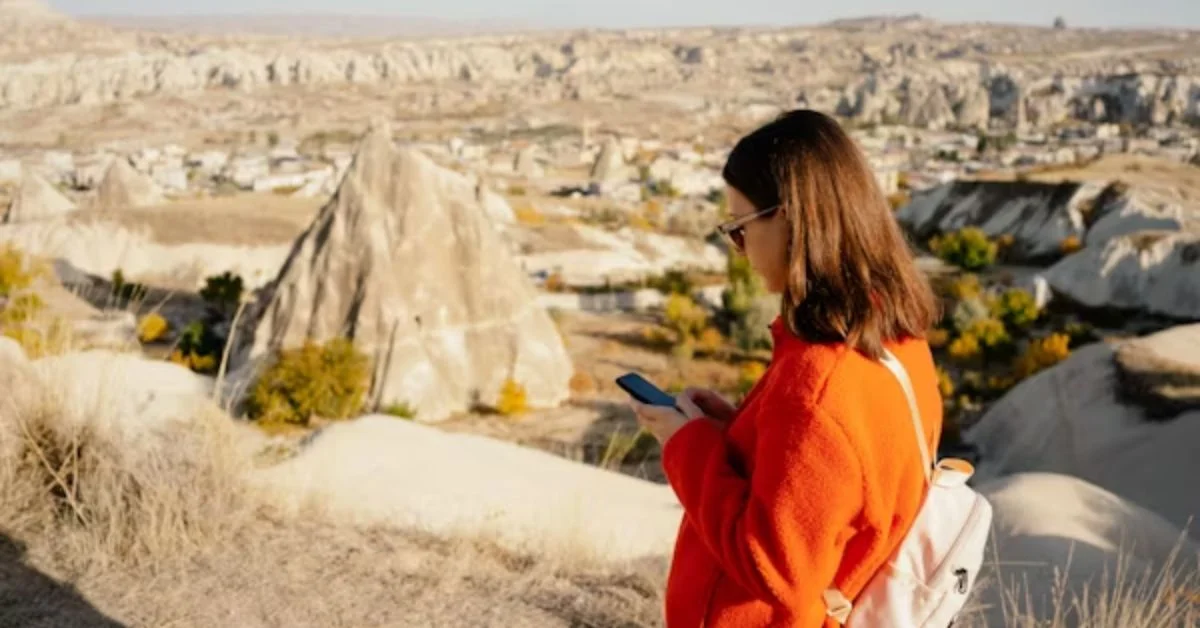
In the era of global travel, curated experiences, and bucket lists that span every continent, the role of a tour guide has become more vital than ever. Whether you’re a solo adventurer, a family on vacation, or a curious wanderer seeking cultural immersion, the right guide can elevate a trip from ordinary to unforgettable. But just as the right tour guide can make a destination come alive, the wrong one can diminish its beauty, distort its truth, and leave the traveler with a memory tainted by frustration, mistrust, or even danger.
The story of “the traveler hired the wrong tour guide” is more than just a cautionary tale; it’s a study in human trust, expectations, and the intricacies of navigating unknown terrain—both literal and cultural. This article offers an in-depth exploration into what happens when that trust is misplaced. We’ll examine the factors that lead to hiring the wrong guide, the types of negative experiences travelers might encounter, the psychological and practical impact of such decisions, and—most importantly—how to prevent these mistakes in future journeys.
This is not just about tourist traps or overpriced city walks. It’s about the complex relationship between traveler and guide, expectations and delivery, and how important due diligence is when you’re putting your time, money, safety, and emotional energy in the hands of someone who may not deserve it.
Why Hiring the Right Tour Guide Matters So Much
When traveling to a new country, city, or culture, one is essentially navigating the unknown. Whether it’s a rainforest hike, a historical city tour, or a cultural immersion experience, your guide becomes your translator, historian, protector, storyteller, and sometimes even therapist.
A tour guide doesn’t just give information—they shape perception. They determine how you understand a place, how much you learn, and how connected you feel to the experience. A good guide bridges gaps in language and culture. They intuitively sense your interests and adapt accordingly. They go beyond the script, sharing personal anecdotes, local knowledge, and hidden gems. A bad guide, on the other hand, might rush through key sites, ignore your questions, deliver inaccurate or fabricated information, or—worse—put you at physical or emotional risk.
Therefore, hiring a guide is not a passive decision. It’s a contract of trust—sometimes unspoken, sometimes paid in advance. If that trust is misplaced, the consequences can range from mildly disappointing to downright traumatic.
The Red Flags You Miss Before It’s Too Late
Often, travelers don’t realize they’ve chosen the wrong tour guide until the experience is already unfolding—or unraveling. Why? Because the decision is frequently based on surface-level indicators: a website, a quick recommendation, a well-written email, or a hotel concierge’s assurance. Few people meet their guide ahead of time, and even fewer ask the right questions.
Let’s examine some common red flags that are often missed:
1. Vague Communication or Overpromising
If a guide seems overly eager to please without offering clear answers or details, this can be a sign they are more interested in securing a booking than delivering a quality experience. Promises like “We’ll see everything!” or “Trust me, it will be unforgettable!” without specifics should be treated with caution.
2. Lack of Certifications or Reviews
While not all great guides are certified, a complete absence of credentials, verified reviews, or online presence is often a bad sign. It suggests they may be operating outside the bounds of professional accountability.
3. Pushy Sales Tactics or Hidden Fees
If your guide insists on cash payments, adds last-minute fees, or pushes you toward specific shops or vendors, they may be working on commission rather than your behalf.
4. Disinterest or Inflexibility: Traveler Hire
Before the tour even begins, if the guide seems disinterested in your preferences, needs, or background, you’re likely headed for a generic, impersonal experience.
Recognizing these red flags early—and acting on them—can prevent significant disappointment and risk.
Common Ways Travelers Suffer with the Wrong Guide
Once the tour begins, the signs become harder to ignore. The difference between a good guide and a bad one can be palpably felt in the way the day unfolds, how informed and prepared the guide is, and the tone they set for the group or individual traveler.
Let’s look at several typical outcomes when a traveler hires the wrong tour guide:
1. Misinformation and Misrepresentation
A poor guide may share inaccurate facts, exaggerated legends, or even completely fabricated stories just to fill time. This not only misleads the traveler but disrespects the history and culture of the destination.
2. Wasted Time and Missed Opportunities: Traveler Hire
When a guide doesn’t plan the itinerary properly or doesn’t understand how to prioritize major sites, travelers may miss key landmarks, rush through meaningful locations, or spend unnecessary time in mediocre places.
3. Emotional Discomfort or Cultural Insensitivity
Some guides display prejudice, misogyny, political propaganda, or cultural insensitivity during tours, creating discomfort and even offense for guests.
4. Unprofessional Conduct
This can include showing up late, using a mobile phone during explanations, flirting with travelers, or even being visibly intoxicated. These behaviors betray the professionalism the role demands.
5. Safety Hazards
In more adventurous tours—mountain treks, safaris, deep-sea excursions—an unqualified guide can put travelers at serious risk by ignoring weather forecasts, bypassing safety protocols, or lacking emergency training.
Each of these outcomes diminishes the integrity of the trip and can lead to long-lasting negative memories, frustration, or even trauma.

The Emotional and Psychological Impact of a Bad Tour Guide
For many people, travel is not just a break from routine—it’s a dream fulfilled, a personal goal, a once-in-a-lifetime journey. When the guide fails to meet even minimum expectations, the emotional toll can be disproportionately high. The sense of betrayal and disappointment isn’t only about money lost—it’s about the experience robbed.
You may feel:
- Embarrassed for being fooled.
- Angry for having trusted the wrong person.
- Disconnected from a culture you were excited to explore.
- Uncomfortable because of the guide’s behavior or attitude.
Some travelers report feeling like they’ve lost a part of their trip forever—a site they won’t return to, a story they no longer trust. This type of emotional letdown can follow them well beyond the trip itself, influencing how they talk about the destination, how they book future experiences, and how open they are to cultural learning.
Real Stories, Real Lessons: Traveler Hired
Let’s briefly examine a few types of real-world situations where travelers regretted their choice of guide:
- A couple in Morocco booked a “local historian” through an unofficial site, only to be taken to six tourist rug shops and fed false information about local traditions.
- A solo female traveler in South America experienced inappropriate flirting and suggestive comments from a male guide, turning what was meant to be a healing, spiritual retreat into an uncomfortable ordeal.
- A group hiking in Southeast Asia was led by an underqualified guide who ignored weather warnings, resulting in two members suffering injuries from a slippery trail descent.
- A family touring Eastern Europe hired a budget guide who skipped key landmarks to save on parking fees, substituting scenic routes with uninspiring detours.
Each of these examples illustrates how an unqualified or unethical guide not only fails to serve the purpose of enhancing the journey—but actively degrades it.
How to Choose the Right Guide and Avoid Future Regrets
Avoiding these outcomes requires diligence, research, and discernment. Here are key steps travelers can take to choose the right guide for their journey:
1. Check Verified Reviews
Use reputable platforms that publish genuine user experiences. Don’t just look at star ratings—read the reviews for context and tone.
2. Ask the Right Questions
Don’t be afraid to ask how long the guide has been operating, what certifications they hold, how they handle unexpected situations, and what their typical itinerary includes.
3. Trust Your Gut: Traveler Hire
Initial communication is key. If the guide seems too slick, avoids details, or makes promises that feel too good to be true, proceed cautiously.
4. Prefer Licensed or Certified Guides
In many countries, official certification is required to operate legally. These guides have undergone training in history, safety, and communication.
5. Use Local Recommendations Cautiously
Hotel concierges and street agents may receive commission for referrals. Always cross-check recommendations with independent sources.
6. Opt for Small Groups or Private Tours: Traveler Hire
Smaller groups allow for better interaction and personalized attention. This increases accountability and ensures your needs are not lost in a crowd.

When It’s Too Late: What to Do If You’ve Hired the Wrong Guide
If you find yourself in the middle of a poor tour experience, it’s not too late to salvage the situation. Here’s how to respond calmly and assertively:
- Set boundaries if the guide behaves inappropriately.
- Ask polite but direct questions to clarify misinformation.
- Request an itinerary update if the experience isn’t matching expectations.
- Document the experience discreetly with notes or photos, especially if you plan to request a refund or leave a review.
- Leave honest feedback afterward to help future travelers make better choices.
Remember, you are the customer. You are allowed to leave the tour if it becomes uncomfortable, unprofessional, or unsafe.
Conclusion: Traveler Hire
Travel is one of the most enriching things a person can do. It opens our eyes, humbles our assumptions, and connects us to the world in profound ways. A good tour guide supports that mission, acts as your ambassador to the unfamiliar, and safeguards the integrity of your journey.
The story of “the traveler who hired the wrong tour guide” doesn’t have to be yours. With awareness, discernment, and preparedness, you can ensure that the guide you hire is worthy of the experience you seek.
Don’t just book a guide—choose one. Vet them. Question them. Understand what they offer. Because when you hire the right person, the world opens up in ways you never imagined.
FAQs; Traveler Hire
1. What are the risks of hiring the wrong tour guide?
Risks include misinformation, wasted time, discomfort, safety hazards, and emotional letdown. A bad guide can damage your trip’s quality.
2. How can I verify a tour guide’s credibility?
Check reviews on trusted travel platforms, ask about certifications, and confirm affiliations with tourism boards or regulatory bodies.
3. Can I request a refund from a bad tour guide?
Yes, if the service was misrepresented or unprofessional, you can contact the booking platform or local authorities to request a refund or report the guide.
4. Are private guides better than group guides?
Not always, but private guides often offer personalized attention. Small group tours led by professionals can also be excellent. Choose based on your comfort level and goals.
5. What should I do during a bad tour experience?
Speak up respectfully, set boundaries, document issues, and consider leaving if safety or respect is compromised. Always report severe issues to the appropriate channel afterward.
For more information, click here.




